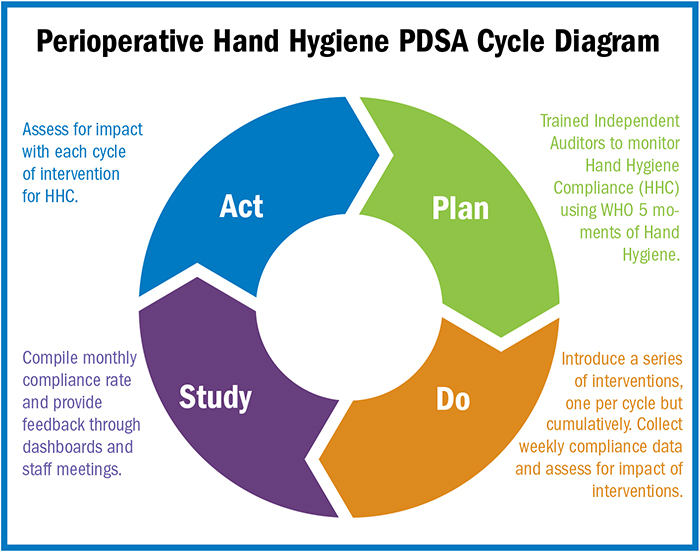
Editor's Note A novel stem cell treatment for unilateral limbal stem cell deficiency (LSCD)—a type of corneal disease caused by injury—restored corneal function in half of study participants within three months, according to a March 5 report in Medical News Today. According to the article, the experimental therapy, cultivated autologous…

It is often said that small actions lead to big results. This so happens to be the case with hand hygiene compliance (HHC) in healthcare. Imagine a simple act, like washing hands, cutting infection rates by half—hospital-acquired infections (HAIs) and surgical site infections being reduced simply by improving handwashing behaviors.…

Editor's Note Universitätsmedizin Berlin reduced anesthesia-related carbon emissions by more than 80% since 2018 by eliminating high-impact anesthetic gases, implementing education initiatives, and revising clinical guidelines, according to a February 27 report in Medical Xpress. The hospital’s efforts targeted desflurane, an anesthetic gas with an extreme climate impact—nearly 8,000 times…

Editor's Note For the first time in Canada, surgeons aim to restore a patient’s sight by gluing a lens into a removed tooth, temporarily implanting the structure into the cheek to develop a tissue lining, then sewing it onto the front of eye three months later. CTV News reported on…

Editor's Note Attendees to the 2025 OR Business Management Conference gained new insight with an international flavor from Moustafa Bleik and Fadi Fares, who had flown all the way from Saudi Arabia to detail recent improvements at King Faisal Specialist Hospital and Research Center. In a session with multiple audience…

Editor's Note In an expansive session at the 2025 OR Business Management Conference, Tampa General Hospital's emergency management team demonstrated how proactive planning, strong partnerships, and real-time decision-making helped navigate multiple crises in 2024, including back-to-back hurricanes and a cyberattack on the state's blood supply. The session was presented by Erinn…

Editor's Note Driving efficiency in perioperative scheduling requires a combination of the right technology, cross-team collaboration, and a commitment to change management. This was among the primary takeaways of an OR Business Management Conference session on Northwell Health's approach to optimizing operating room (OR) workflows. Adam Becker, MPA, assistant vice…

CEO Karen Franco, MBA, spent years struggling to fill surgical technologist (ST) positions at Pacific Surgery Center in Poulsbo, Washington, due to a lack of viable training options. Nearly 1,400 miles away, Deb Braly, RN, a nurse educator in the surgery department of San Luis Valley Regional Medical Center in…

Editor's Note An EHR-integrated closed-loop clinical decision support system (CDSS) significantly reduced unnecessary preoperative testing, improved patient safety, and significantly reduced costs across two hospitals in Madrid, Spain. As detailed in a study published January 3 in npj digital medicine, this system demonstrates the potential of automated guidelines to optimize…

“Surgeons are the only people trained to provide surgery—life-saving care," says Carrie Zlatos, chief of legislative and political affairs at the American College of Surgeons (ACS). "They are an essential element of a community-based healthcare system. Regardless of where you live, everyone should have access to full quality surgical care.”…